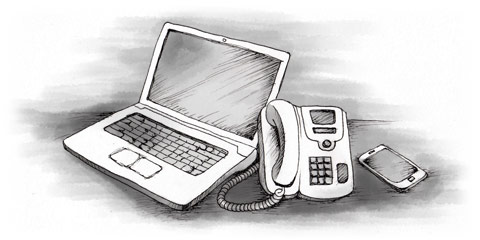Even though the majority of fixed lines are still operated by Deutsche Telekom, competition has reduced charges, especially for long-distance calls. This is mainly due to customers being able to use alternative providers by dialing a special prefix before their call (see our section on call by call for further details).
Phone calls are charged per minute, including even local calls ( das Ortsgespräch). This explains why Germans don't spend as much time on the phone as some other nationalities, such as Americans. If you are staying with a host family, be aware that you shouldn't talk for a long time like you do at home, even when calling a friend across the street.
Rates vary considerably, depending on time of day and distance. Calls are much cheaper between 18:00-09:00 and all day at weekends and on national public holidays. The lowest rate is between 21:00 and early morning, which applies to long-distance calls in particular.
For international calls, reduced rates are charged for some countries at certain times of day. Please note that calling from a mobile has different and usually higher tariffs.


